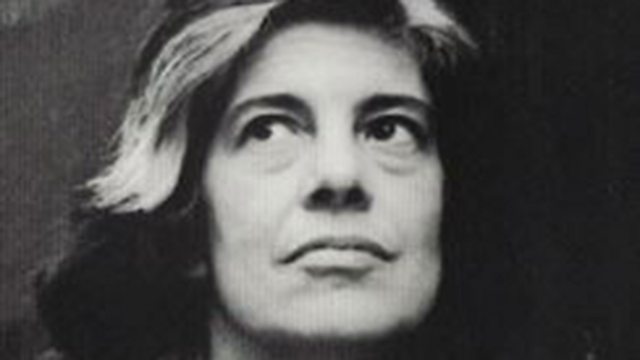Susan Sontag, Feminist economics, Waad-al-Kateab
A biography of Susan Sontag, why feminist economics is intersectional, and Waad Al Kateab's new film, For Sama.
Susan Sontag, the American essayist, novelist and critic rose to fame in the 1960s. She became an iconic cultural figure and during her life she was linked with figures like Andy Warhol and Annie Leibovitz. Fifteen years after her death, Benjamin Moser has written a new biography about her which digs beneath her public image. He discusses her life, her work and how her life charts the changes in women's lives over the last 60 years. It’s 30 years since the concept of intersectionality was introduced by Professor Kimberlé Crenshaw. The Women’s Budget Group, who are also marking their 30th anniversary, thought it apt to address the way feminist economics has embraced the idea that there is no single universal experience of inequality shared by all women. Next week, the Director of the group Dr Mary-Ann Stephenson will chair a panel on Intersectionality in Feminist Economics. She joins Jenni along with Dr Zubaida Haque from the Runnymede Trust and Angela Matthews from the Business Disability Forum to discuss why a one size fits all policy doesn’t work. Waad al-Kateab has documented her life on camera in war torn Aleppo, Syria. While conflict, violence, death and cruelty raged around her, she fell in love, got married and had a baby daughter. She captures stories of loss, laughter, sacrifice and survival. She joins Jenni to discuss her film, ‘For Sama’, a love letter from a young mother to her daughter. And, listener Val Dawson talks about the photograph that captures her best day.
Presenter: Jenni Murray
Producer: Ruth Watts
Last on
Broadcast
- Thu 12 Sep 2019 10:00����ý Radio 4
Follow us on Instagram
Get all the pictures, videos, behind the scenes and more from Woman’s Hour
Podcast
-
![]()
Woman's Hour
Women's voices and women's lives - topical conversations to inform, challenge and inspire.


